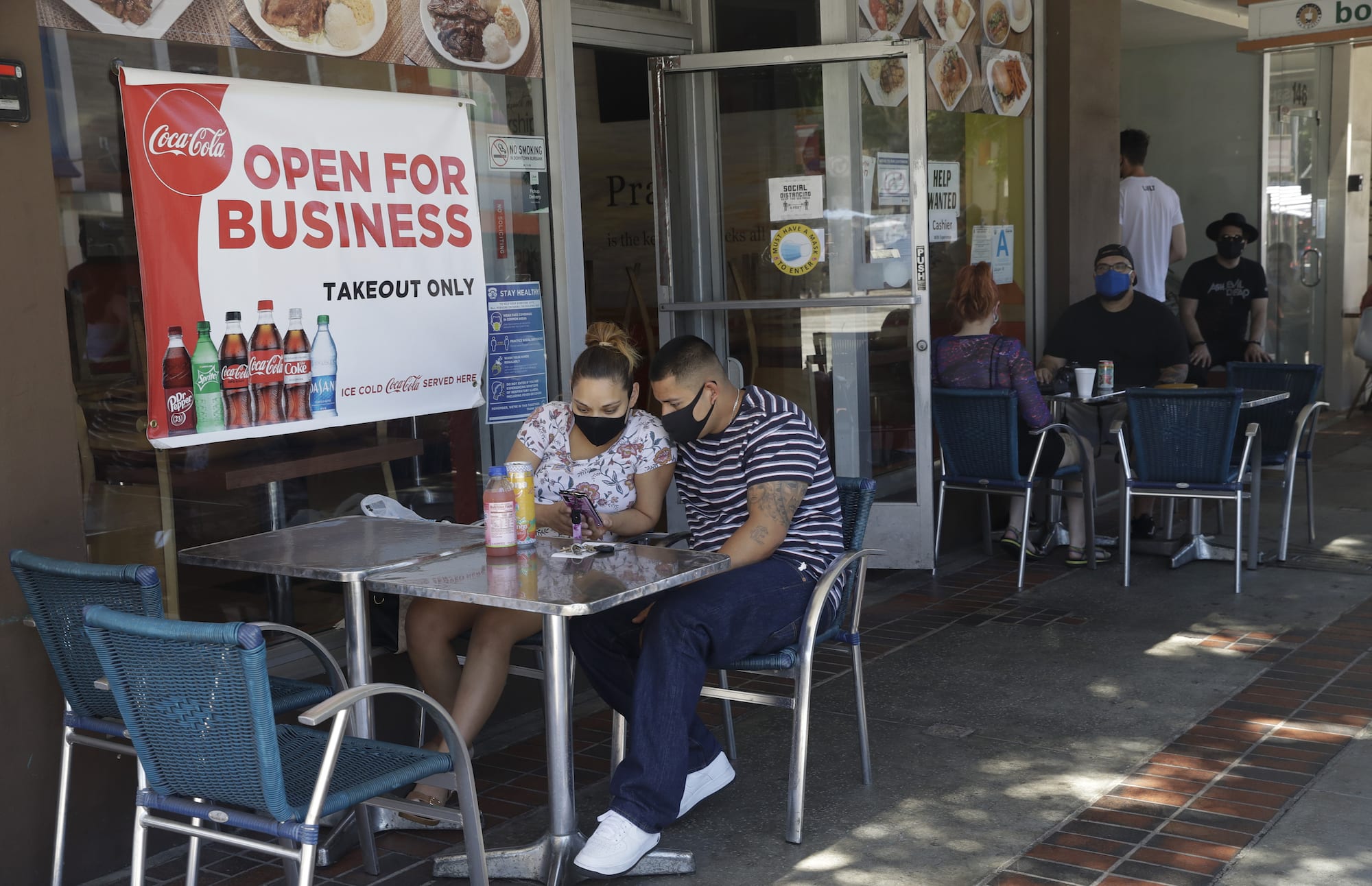
The Haas School of Business and Berkeley Law played a critical role in developing the State of California’s new fund to support small businesses devastated by the coronavirus pandemic.
The California Rebuilding Fund, a new public-private partnership announced last week by the Governors’ Office of Business and Economic Development (GO-Biz), uses government-backed capital to support the state’s small businesses. The fund is targeted particularly toward the smallest firms and entrepreneurs from communities that have been historically disenfranchised.
“The state put many groups together to try to get the best of the best ideas,” said Berkeley Haas Assoc. Prof. Adair Morse, who helped develop the structure for the fund. “We all came together to try to optimize a plan for the people of California.”
The state put many groups together to try to get the best of the best ideas.
The pandemic has left 30% to 40% of California’s small businesses on the verge of failure, according to Mark Herbert, vice president of California’s Small Business Majority.
Haas’ efforts to help save small businesses began when Morse and Prof. Laura Tyson—concerned about the impact of shelter-in-place closures—began crafting a strategy to attract private and institutional capital to help healthy small businesses make it through the crisis. Their work took shape in the City of Berkeley’s Save our Small (SOS) Business Recovery Loan Fund, launched in March.
“Speed is of the essence”
That project led to new work on the Governor’s initiative when Tyson connected Morse to Berkeley Law’s Susan (Suz) Mac Cormac, a lecturer in social enterprise and a corporate partner at the firm Morrison & Foerster. After coronavirus struck, Mac Cormac started providing pro bono legal advice to struggling small businesses in need of loans by hosting office hours through a partnership with the Law School. She saw the state’s work as a way to amplify that work.

Morse, Mac Cormac, and Tyson quickly spearheaded a group called CASE (the California Small Business Enterprise Task Force). Tyson connected the team to former Fed Chair Janet Yellen, a professor emeritus at Haas, and a member of the state’s Task Force on Business and Jobs Recovery.
Yellen embraced their ideas and the trio was invited to testify with many other groups involved with the effort during the California Infrastructure and Economic Development Bank’s (IBank) board meeting this week.
IBank has received $25 million from the state to collaborate with the private sector to drive capital to Community Development Financial Institutions (CDFIs) and other mission-based lenders. The loans are expected to start going out next month.
Tyson called the initiative a game changer for struggling businesses and applauded the efforts of many groups on the project.
“Speed is of the essence in bridging this gap for businesses that were healthy, but now at risk of failure through no fault of their own,” Tyson said. “We’re fortunate that so many people—with expertise in finance, law, economics, and public policy—put their heads together, and the governor’s office made it happen so quickly.”
“We will need more”
Mac Cormac said the work that her team did negotiating with lenders and philanthropists on behalf of small businesses blended well with the work Tyson and Morse were doing on the business side, designing loan structure. The goal, she said, is to make sure that the loan terms are transparent to avoid excessive fees or red tape.
Mac Cormac said she felt a moral obligation to act when small businesses started shutting down and clients started calling her for help.
“There’s been this desperate, desperate need and I’m hoping this will help,” she said. “I think it will help, but we will need more because it’s going to be bad for quite awhile.”
Morse added: “We’re so pleased with the outcome and what that money allocated will mean to these small businesses that are struggling to keep the lights on.”
Supporting small businesses
The program has three main ways it will support small businesses:
- A loan fund that will make flexible, affordable loans to small businesses with 50 employees or fewer through participating community lenders. The loan fund will be accepting applications on this website, which will be available in the coming weeks.
- A free resource guide, built and updated by pro-bono lawyers at Morrison & Foerster that includes county by county guidance on reopening, other financial resources available, and the latest on commercial eviction moratorium. The guide is also available in Spanish here.
- Free virtual office hours staffed by expert lawyers so that small businesses have a place to get specific questions answered. Office hours are held weekly.